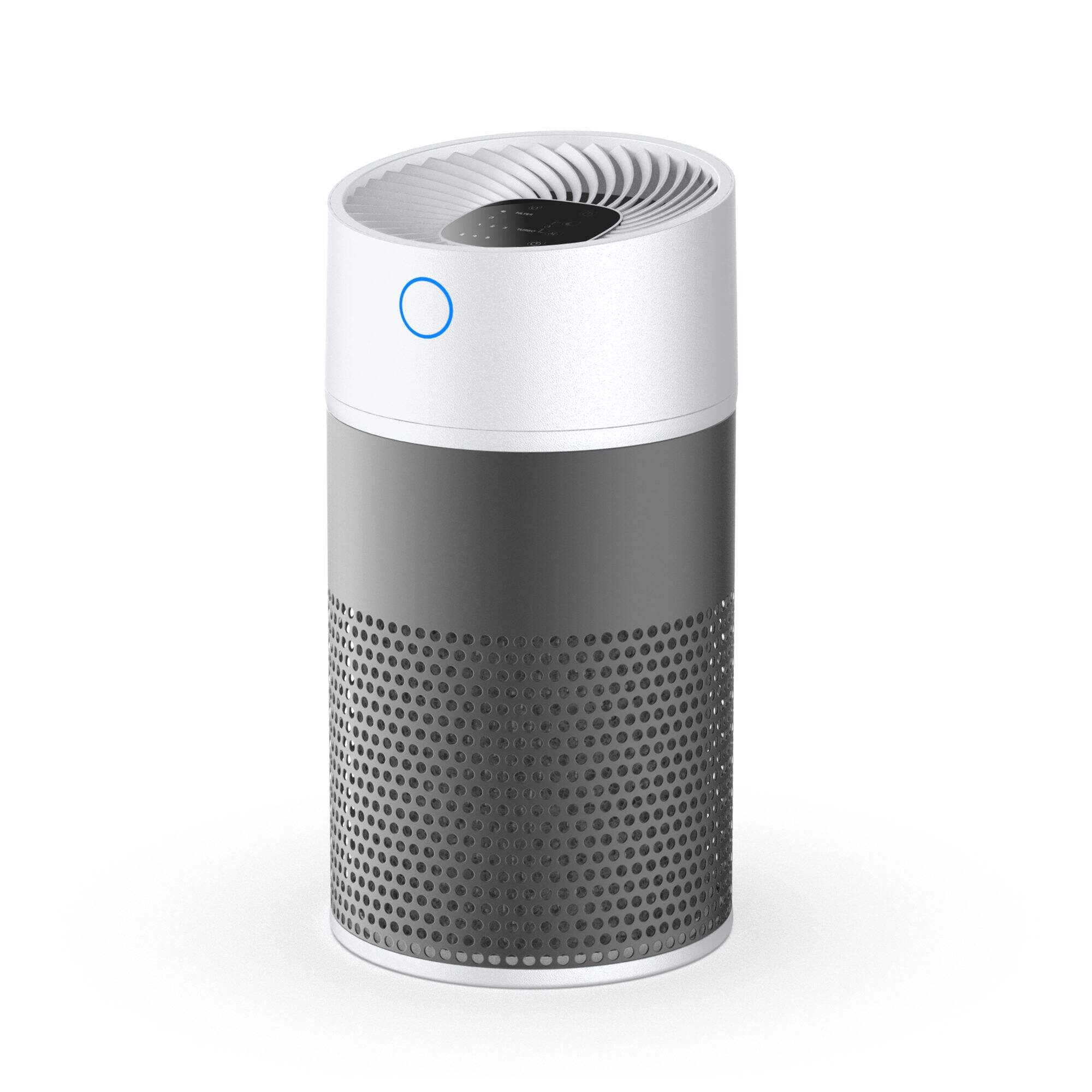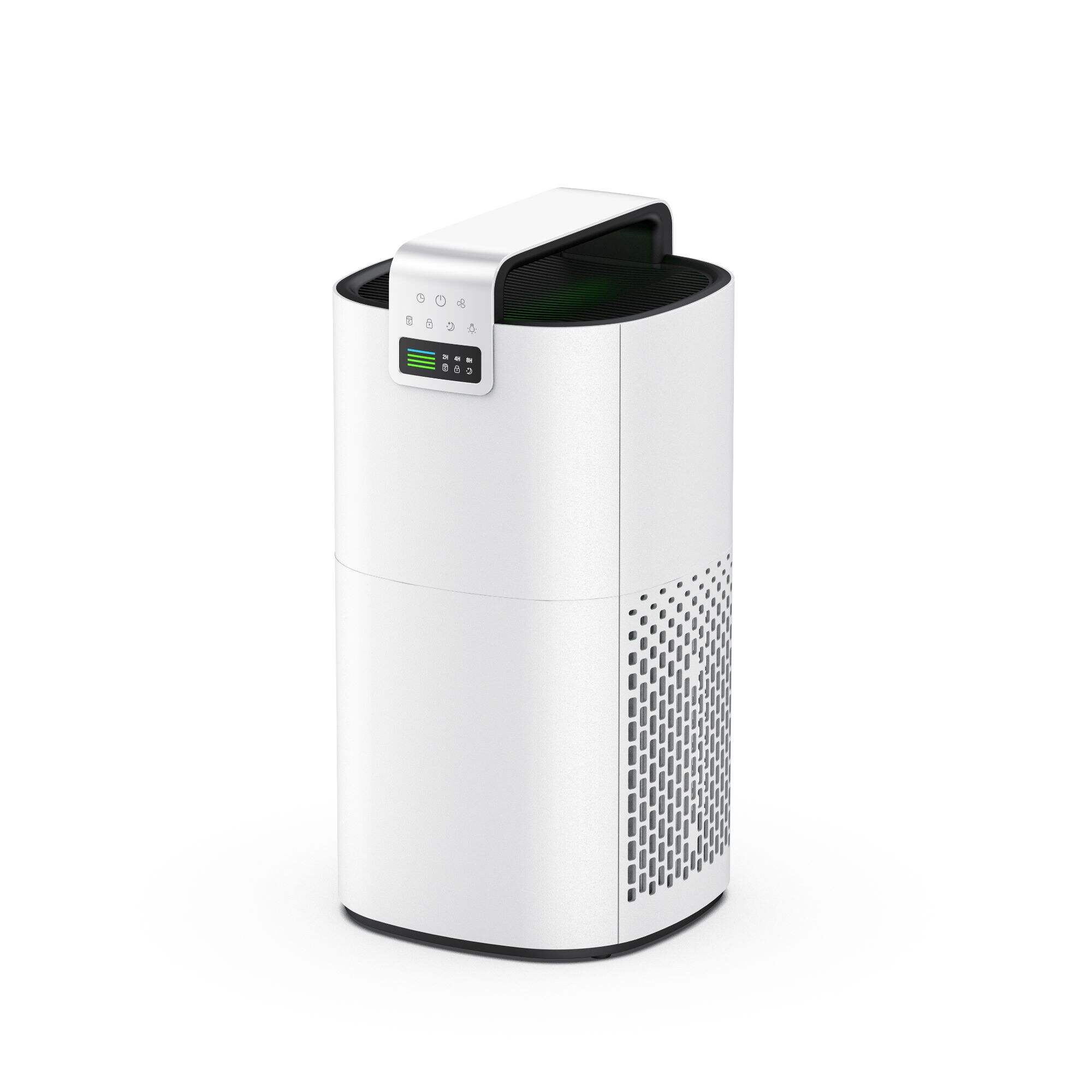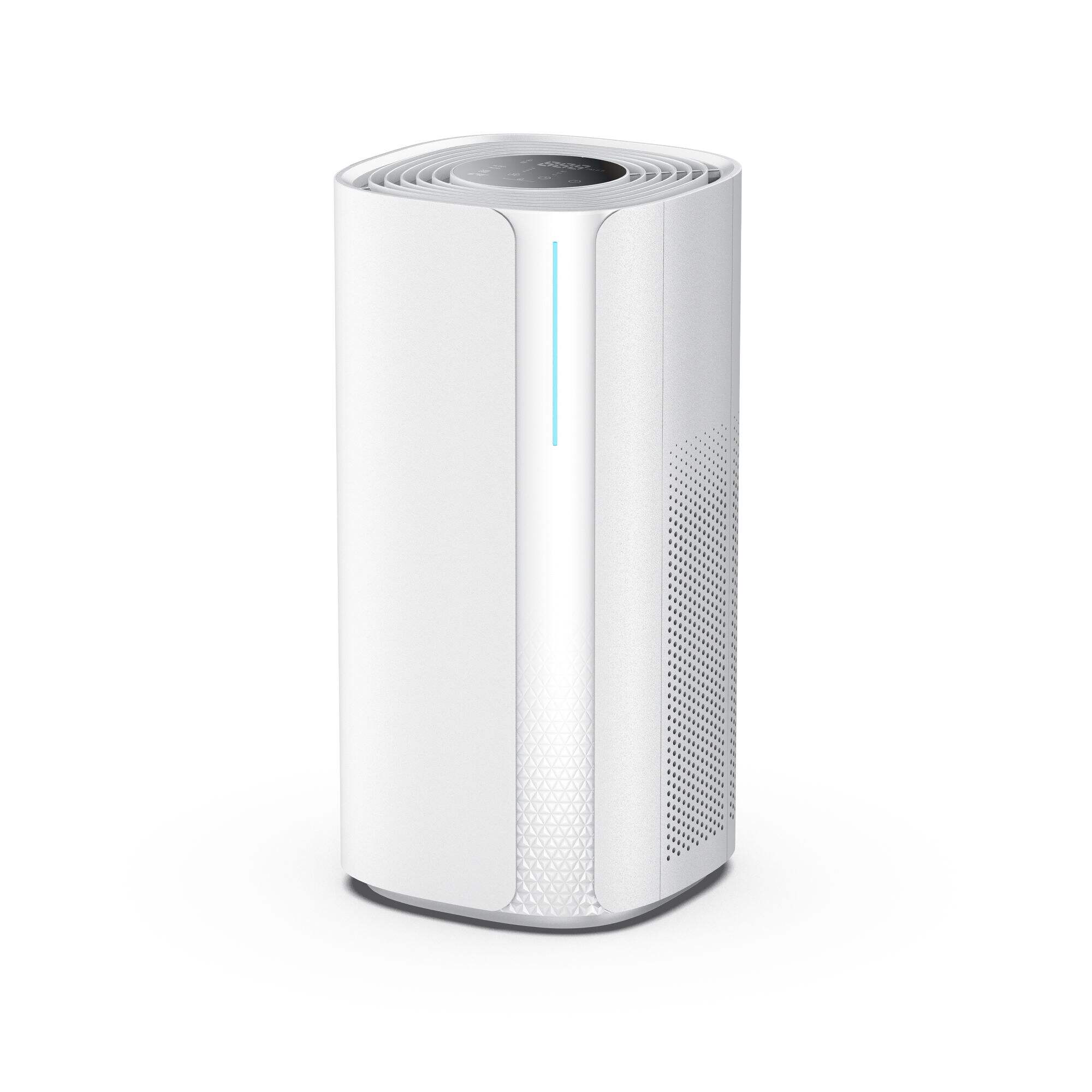징누오 공기청정기로 집안 공기 질 개선하기
실내 공기질 이해하기
실내 공기질(IAQ)은 건물 내부의 공기 상태와 그가 거주자에게 미치는 영향에 관한 것으로, 우리의 건강과 복지에 있어 중요한 요소입니다. 나쁜 IAQ는 다양한 호흡기 문제와 자극을 유발할 수 있습니다. 예를 들어, 충분하지 않은 환기가 이루어지는 실내 환경은 야외 환경보다 오염 물질의 농도가 더 높을 수 있습니다. 이는 특히 천식이나 알레르기와 같은 질환을 가진 사람들에게 건강과 편안함을 보호하기 위해 IAQ를 모니터링하고 개선하는 것이 중요함을 강조합니다.
실내 공기질이 나쁜 데에는 환기가 불충분한 것, 특정 청소용품, 곰팡이 증식을 촉진하는 과도한 습기 등 여러 요인이 있습니다. 부족한 환기는 오염물질을 실내에 가두어 호흡기 문제의 위험을 증가시킵니다. 또한 일부 청소 제품은 공기질을 저하시키는 휘발성 유기화합물(VOCs) 및 기타 유해 물질을 방출합니다. 습도가 너무 높은 주택에서는 곰팡이와 집먼지진드기가 번성하기 쉬운 환경이 만들어지며, 이는 건강 문제를 유발할 수 있습니다.
일반적인 가정에서 발생하는 오염물질로는 먼지, 꽃가루, 반려동물의 비듬, 페인트와 청소제 등의 다양한 제품에서 나오는 휘발성 유기화합물(VOCs)이 포함됩니다. 기기들은 일산화탄소를 배출하여 실내 공기 오염을 더 악화시킬 수 있습니다. 이러한 오염원들을 식별하고 효과적으로 완화하는 것이 거주자의 건강을 보호하는 데 중요합니다. 정기적인 유지 관리, 효율적인 환기, 적절한 필터링 사용은 이러한 유해 물질에 대한 노출을大幅히 줄이고 전체 실내 환경을 개선하는 데 도움을 줄 수 있습니다.
집에서 공기 질 개선 방법
실내 공기 질을 향상시키려면 큰 차이를 만드는 정기적인 유지 관리가 필요합니다. 이에는 자주 HVAC 필터를 교체하고, 공기 덕트를 청소하며, 집 전체에 적절한 환기를 확보하는 것이 포함됩니다. 정기적인 점검 일정을 설정하면 먼지, 곰팡이 및 기타 오염 물질의 축적을 방지하여 최적의 실내 환경을 유지하는 데 도움이 됩니다.
자연적인 해결책도 실내 공기 질을 효과적으로 향상시킬 수 있습니다. 공기 정화 능력이 있는 식물을 들여놓으면 다양한 실내 오염 물질을 줄이는 데 도움이 됩니다. 양치류나 백합과 같은 식물은 공기를 개선하면서 동시에 안락한 분위기를 조성할 수 있습니다. 또한 에센셜 오일을 사용하면 공기 중 오염 물질을 줄이고 정화 효과와 함께 좋은 향기를 제공할 수 있습니다.
보다 정확한 대응을 위해 특히 HEPA 필터가 장착된 공기 청정기를 사용하면 더 작은 공기 중 입자를 잡을 수 있습니다. HEPA 필터는 매우 효율적이며, 99% 이상의 먼지, 꽃가루 및 기타 유해한 입자를 제거하여 더 건강한 가정 환경을 제공합니다. 이 기술은 알레르기나 호흡기 문제를 가진 사람들에게 특히 유익하며, 이러한 공기 청정기는 깨끗하고 상쾌한 분위기를 보장합니다.
경노 공기 청정기 사용의 이점
경노 공기 청정기를 사용하면 집 환경에 여러 가지 이점을 가져올 수 있습니다. 씻을 수 있는 공기 입구 가연 제거 애완 동물 가피 공기 정화기 는 애완동물 주인들의 필요를 충족시키기 위해 애완동물 털과 비듬 같은 큰 입자를 포집합니다. 이는 호흡기 문제로 이어질 수 있는 알레르겐을大幅히 줄이는 데 도움이 되므로 알레르기 환자에게 적합한 선택입니다.

배급 아로마테라피를 가진 가정용 3인1 HEPA 필터 공기 정화기 공기 정화와 아로마테라피를 결합하여 한 걸음 더 나아갑니다. 그의 HEPA 필터는 효과적으로 공중의 미립자를 잡아내며, 내장된 아로마테라피 기능은쾌적한 향으로 분위기를 돋avigate 시킵니다. 이 이중 작용은 단지 공기를 정화하는 데 그치지 않고 집의 전체적인 분위기도 한층 업그레이드합니다.

마지막으로, 가정용 스마트 공기 질 모니터 대형 공기 정화기 실내 오염 물질을 실시간으로 모니터링하여 공기 질에 대한 즉각적인 통찰을 제공합니다. 이 스마트한 기능은 주택 소유자가 최적의 공기 상태를 유지하기 위해 신속하게 조치를 취할 수 있도록 합니다.

이러한 공기청정기는 공기 질을 개선하는 것뿐만 아니라 생활 공간도 더욱 쾌적하게 만들어 줍니다. 따라서 건강과 편안함을 중시하는 사람들에게 지ン누오는 훌륭한 선택이 됩니다.
실내 공기 품질에서 습도의 역할
습도는 특히 공기가 자주 건조한 겨울철에 실내 공기 품질을 유지하는 데 중요한 역할을 합니다. 가정 환경에서 가습기를 사용하면 습도 수준을 균형 있게 유지해 건조한 피부와 호흡기 불편과 같은 일반적인 겨울 관련 문제를 완화할 수 있습니다. 공기에 수분을 추가함으로써 가습기는 더 쾌적한 생활 환경을 만들어 과도하게 건조한 상태로 인한 건강 문제를 줄일 수 있습니다.
건조한 공기는 집 환경에 여러 가지 부정적인 영향을 미칠 수 있습니다. 이는 호흡기 문제의 위험을 증가시키고, 천식과 알레르기와 같은 상태를 악화시킵니다. 또한 피부 자극을 일으키고 목재 가구 및 악기를 손상시킬 수 있습니다. 적절한 습도를 유지하는 것은 개인의 편안함뿐만 아니라 집 내부를 보호하기 위해서도 필수적입니다. 큰 방용 공기 가습기를 사용하면 거주 공간의 모든 부분이 최적의 습도 수준을 누리게 되어 전반적인 웰빙을 증진하고 소중한 가전제품을 보존할 수 있습니다.
오염물질 제거: HEPA 필터의 중요성
HEPA 필터는 0.3 마이크론 이상 크기의 입자를 99.97% 포집하여 청결한 실내 공기를 유지하는 데 필수적이며, 이로 인해 알레르기 원인물질과 유해한 입자를 효과적으로 줄일 수 있습니다. 이러한 뛰어난 능력은 특히 공기 품질이 건강에 큰 영향을 미칠 수 있는 집이나 사무실 같은 환경에서 알레르기를 억제하고 호흡기 문제를 예방하는 데 중요합니다. HEPA 필터는 먼지와 꽃가루를 제거할 뿐만 아니라 연기와 반려동물 비듬과 같은 매우 작은 입자도 걸러내 더 건강한 실내 환경을 제공합니다.
공기 청정기를 선택할 때 방 크기, 특정 민감성, 필터 종류를 평가하는 것이 중요합니다. 예를 들어, 알레르겐이나 반려동물의 털이 많은 지역은 최적의 공기 질을 보장하기 위해 고효율 필터가 필요할 수 있습니다. 또한 공기 청정기를 선택할 때 공간의 크기를 고려하는 것이 중요합니다. 작은 공간용으로 설계된 장치는 더 큰 방에서는 효율적으로 작동하지 않을 수 있기 때문입니다. 이러한 요소들을 이해하면 가정주인들은 자신들의 독특한 필요에 맞는 공기 청정기를 선택하는 데 있어 자신감을 가질 수 있으며, 실내 공기 질을 향상시키는 데 필요한 지원을 제공할 수 있습니다.
실내 식물들로 자연적인 공기 청정기
스파이더 플랜트, 평화백합, 그리고 스네이크 플랜트와 같은 실내 식물들은 공기 질을 개선하기 위해 매우 추천됩니다. 이러한 식물들은 거주 공간 내의 유해 물질을 제거하고 습도를 조절하는 능력으로 유명합니다. 예를 들어, 스파이더 플랜트는 포름알데히드와 같은 오염 물질을 제거하는 데 효과적이며, 평화백합은 주요 실내 공기 오염 물질을 줄이는 데 도움을 줄 수 있습니다. 그러나 이러한 식물들의 공기 정화 능력을 유지하려면 적절한 관리가 필요합니다.
실내 식물이 공기 정화에 유익하게 작용할 수 있도록 하려면 필수적인 관리 팁을 따르세요. 첫째, 적절한 물 주기는 매우 중요합니다; 과도한 물주는 뿌리 썩음으로 이어질 수 있으며, 부족한 물주는 시들음을 초래할 수 있습니다. 또한, 식물이 충분한 빛을 받도록 하는 것도 중요합니다. 많은 실내 식물은 잘 자라기 위해 간접적인 햇빛이 필요합니다. 더불어, 잎을 정기적으로 닦아주는 것은 오염 물질을 효율적으로 흡수하는 능력을 유지하는 데 도움을 줍니다. 이러한 간단한 관행들은 집의 공기를 더 깨끗하게 만드는 데 식물이 기여할 수 있도록 돕습니다.
실내 공기 질 모니터링
실내 공기질을 모니터링하는 것은 건강한 생활 환경을 유지하기 위해 매우 중요합니다. 스마트 기술은 오염 물질을 측정하고 필요 시 조치를 권장하는 장치를 사용하여 공기질을 추적하는 혁신적인 솔루션을 제공합니다. 예를 들어, 이러한 장치는 오염 물질 농도가 증가할 때 창문을 열거나 HEPA 필터가 장착된 공기 청정기를 사용하도록 제안할 수 있습니다. 실시간 데이터를 제공함으로써 이들은 거주자가 즉시 조치를 취해 실내 공기질을 개선하고 유해한 미세 입자로부터 자유로운 환경을 확보할 수 있도록 합니다.
공기 질 검사가 필요한 것을 나타내는 징후를 인식하는 것은 매우 중요합니다. 이러한 징후에는 알레르기 증상의 눈에 띄는 증가, 예를 들어 재채기나 눈 자극, 지속적인 불쾌한 냄새, 그리고 온도를 일관되게 유지하는 데 있어 HVAC 시스템이 겪을 수 있는 문제들이 포함됩니다. 이러한 문제들은 실내 오염물질의 증가된 농도 또는 통풍 시스템의 비효율성으로 인한 근본적인 공기 질 문제를 암시할 수 있습니다. 이러한 징후들을 신속히 해결하면 더 심각한 건강 문제를 예방하고 전체 공기 질을 향상시킬 수 있습니다.

 EN
EN
 AR
AR
 NL
NL
 FR
FR
 DE
DE
 EL
EL
 HI
HI
 IT
IT
 JA
JA
 KO
KO
 PL
PL
 PT
PT
 ES
ES
 ID
ID
 VI
VI
 TH
TH
 TR
TR
 MS
MS
